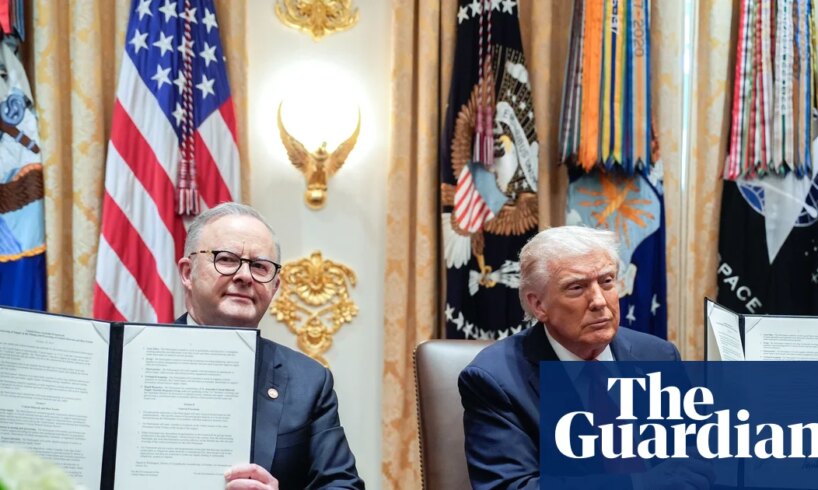
Anthony Albanese has struck a multi-billion dollar deal with Donald Trump to develop critical minerals projects in Australia that will never be commercially viable.
When it’s laid out like that, it very much sounds like our prime minister fell victim to the president’s “art of the deal”. But we are in a new world where the national value of our critical minerals extends beyond economics, experts say.
“This is a really significant deal, and I’m surprised how good it is,” says Hayley Channer, the director of the economic security program at the United States Studies Centre at the University of Sydney.
“The fact that any US money is coming to Australian companies is huge; we really need this money. I don’t think it could have gone any better.”
The co-investment in projects in Western Australia and the Northern Territory puts Australia at the heart of America’s effort to reduce its over-reliance on Chinese critical minerals – a vulnerability that China has been ruthlessly exploiting amid the trade conflict between the two great world powers.
Albanese and Trump have committed to each provide A$1.5bn in the next six months as part of a longer term A$13bn pipeline of projects in both countries.
China’s chokehold is shown in the stats: the communist country accounts for roughly 70% of rare-earth mining globally, 90% of processing and 93% of magnet manufacturing.
Sign up: AU Breaking News email
What it doesn’t mine at home, China ships from projects it owns across Africa, Asia and Australia – using its own transport infrastructure – before refining the elements at home.
China, over the years, has used its productive might to flood the global rare earths market, sending prices crashing and competitors out of business.
“Essentially, that’s what China has done with multiple mineral companies,” Channer says. “It floods the market with really cheap products, and then other companies’ share prices drop, and then they go out of business. So the companies couldn’t survive on their own.”
This is part of the reason why government intervention has become necessary, and likely will be for the foreseeable future to remain viable.
The rare earths industry also faces a more fundamental challenge: advanced manufacturers cannot make their products without rare-earth elements, often many of them. But they only need a very small amount of each – which makes it hard for miners to achieve economies of scale.
skip past newsletter promotion
Sign up to Breaking News Australia
Get the most important news as it breaks
Privacy Notice: Newsletters may contain information about charities, online ads, and content funded by outside parties. If you do not have an account, we will create a guest account for you on theguardian.com to send you this newsletter. You can complete full registration at any time. For more information about how we use your data see our Privacy Policy. We use Google reCaptcha to protect our website and the Google Privacy Policy and Terms of Service apply.
after newsletter promotion
“The reason why this industry is not like the oil industry, for instance, comes back to the fact that you don’t need much of the minerals – only tiny percentages go into anything,” Channer says.
“But if you don’t have minerals, whatever product you’re making doesn’t work. So basically, it’s not commercially viable on its own, but we need them for everything.”
“It’s the yeast and the pizza,” he says. “You only need a tiny bit of it. But if you don’t have yeast, you’ve got no pizza.”
Richard Holden, an economics professor at UNSW, is about as hard-headed as it comes. But he also agrees that the value of this week’s deal goes beyond the narrow criterion of whether the dollar benefits outweigh the costs – which they do not.
“It’s worth it,” Holden says. “We are in a different world now to the pre-Trump and Xi world. We are in a world where countries are acting like countries, rather than commercial enterprises that happen to operate in those countries.”
In other words: “power matters and bargaining chips matter.”
Holden says critical minerals are one of very few bargaining chips Australia has when it comes to the US.
“This is something that matters to President Trump, so it should matter to us. So the standard cost-benefit test – that’s out the window.”
“We have to ask: ‘Does it pass the bargaining chip test?’, and this does,” he says. “And then the harder question is: ‘How much money is OK to blow on it?’.”





